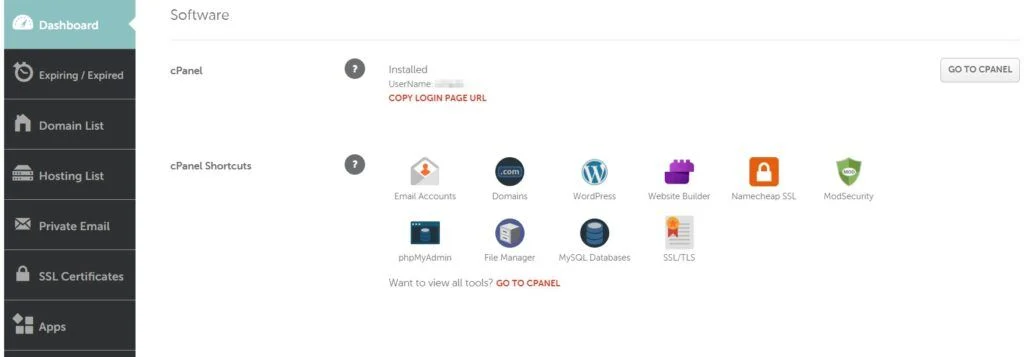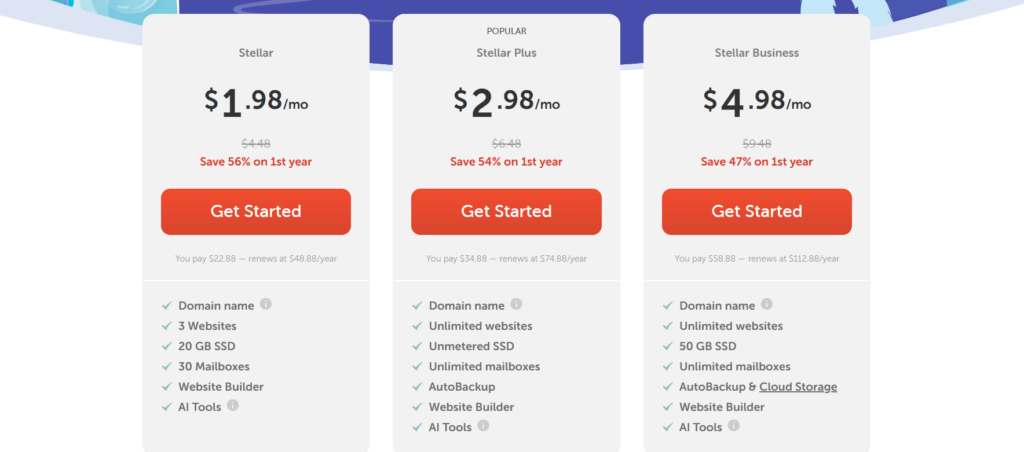If you’re looking for a place to host your website, you’ve probably heard about Namecheap. Known for cheap domain names, Namecheap also offers web hosting. But is their hosting service good enough in 2025? Let’s explore and find out if it’s worth your time and money.
This review covers everything: how easy it is to use Namecheap, its speed and performance, pricing, and features. By the end, you’ll know if this hosting provider is the right fit for you.

What is Namecheap?
Namecheap started as a company selling domain names. Over the years, it added web hosting to its services. Today, it’s a popular choice for beginners and small businesses. Why? Because it’s affordable and promises good features.
But cheap doesn’t always mean good. Many users want to know if Namecheap’s hosting performs well under real-world conditions.
How Easy is Namecheap to Use?
When choosing a web hosting provider, ease of use is important. Not everyone knows coding or server management. That’s why Namecheap offers tools to make things simpler.
Account Management
Namecheap has a user-friendly dashboard. This is where you manage your domains, hosting plans, and security settings. The interface is clean, and everything is easy to find. For example, you can update your website settings or transfer a domain with just a few clicks.

Website Management
To manage websites, Namecheap uses cPanel, a popular tool among web hosting providers. cPanel makes it easy to:
- Create email accounts.
- Install apps like WordPress.
- Manage files and databases.
However, cPanel may feel complicated for complete beginners. But don’t worry—Namecheap offers guides and tutorials to help.
Performance: Speed and Uptime
A fast website is crucial. Visitors won’t wait for slow pages to load. Namecheap promises good performance, but let’s see how it really does.
Speed Tests
In tests, Namecheap’s servers delivered solid results. For example:
- Time to First Byte (TTFB): 182 ms (milliseconds). This is how quickly the server responds. Lower is better.
- Largest Contentful Paint (LCP): 538 ms. This measures how fast the main content loads.
These results are good and show that Namecheap is reliable for small websites.
Uptime
Namecheap promises 99.9% uptime. This means your website should stay online almost all the time. Tests over six months showed 99.908% uptime. This is decent but not the best in the industry. For comparison, competitors like SiteGround and Hostinger offer 99.998% uptime.
Features of Namecheap Hosting
Namecheap’s hosting plans come with many features. Let’s break down the key ones.
Free Domain and SSL
Every hosting plan includes a free domain and SSL certificate. SSL makes your site secure and shows a padlock symbol in browsers. It’s essential for websites today, especially for e-commerce.
SSD Storage
Namecheap uses SSD storage for faster data access. This helps improve the speed of your website, especially if it has many images or videos.
Bandwidth
Namecheap offers unmetered bandwidth. This means you can handle as much traffic as your website attracts without extra costs.
Website Builder
Don’t know how to code? No problem. Namecheap includes a drag-and-drop website builder. You can create a professional-looking site in minutes.
Section Summary
Namecheap is easy to use for most people. Its dashboard and cPanel provide all the tools you need to manage a website. The performance is decent, and the features are generous for the price.
Namecheap Hosting Plans and Pricing
Namecheap is known for being affordable. It offers several plans to fit different needs and budgets. Let’s look at what they provide and how much they cost.
Shared Hosting Plans
Shared hosting is the most popular option for small websites. With this, multiple websites share the same server. Namecheap’s shared hosting plans are:

- Stellar
- Price: Around $2/month (renews at $5/month).
- Features: Host up to 3 websites, 20 GB SSD storage, free domain, free SSL, and 30 email accounts.
- Stellar Plus
- Price: About $3/month (renews at $6/month).
- Features: Unlimited websites, unmetered storage, and automatic backups.
- Stellar Business
- Price: $4.50/month (renews at $9/month).
- Features: Priority server resources, 50 GB SSD storage, and cloud-based storage for backups.
VPS Hosting
For websites needing more power, Namecheap offers VPS hosting. This gives you a private server environment for better speed and security. Plans start at around $6/month.
Dedicated Servers
If you’re running a large or complex website, consider Namecheap’s dedicated server plans. These start at $48/month. You get full control over a server, which is great for e-commerce sites or apps.
Renewal Costs
While the introductory prices are low, renewal costs are higher. Be prepared to pay more once your first term ends. This is common with most hosting providers, not just Namecheap.
Performance During Heavy Traffic
Namecheap performs well for small to medium websites. But what happens when your site gets a traffic spike? For this, we tested how it handles many visitors at once.
Load Testing
We used a tool to simulate 1,000 visitors accessing the site within one minute. Namecheap’s average response time was 328 ms, which is decent. However, competitors like Hostinger and SiteGround performed better under similar tests.
Pros and Cons of Namecheap’s Performance
Pros:
- Good speed for small websites.
- SSD storage and LiteSpeed servers help improve performance.
Cons:
- Slower under heavy traffic compared to competitors.
- Limited data centers (only in the US, UK, and EU).
Security Features
A secure website builds trust with visitors. Namecheap provides basic security features to keep your site safe.
Free SSL Certificates
Every plan includes an SSL certificate. This encrypts data between your site and its visitors, preventing hacking attempts.
Virus Scanning and Backups
Namecheap scans your website for malware. Automatic backups are included in most plans, ensuring you can restore your site if something goes wrong.
Anti-DDoS Protection
To protect against traffic overload attacks, Namecheap offers anti-DDoS protection. This keeps your website online during minor attacks.
Missing Advanced Features
While Namecheap’s security is good for beginners, it lacks advanced features like web application firewalls (WAF) and AI-based anti-bot systems. Competitors like SiteGround include these in their plans.
Section Summary
Namecheap offers affordable plans with useful features like free SSL, backups, and virus scanning. However, renewal prices are higher, and its servers aren’t the best for handling heavy traffic. Security is solid but could be improved with more advanced features.
Namecheap’s Customer Support: Is It Helpful?
When issues arise with your website, having reliable customer support is essential. Let’s see how Namecheap performs in this area.
24/7 Availability
Namecheap offers 24/7 customer support via live chat and a ticket system. This means you can contact them anytime if you face issues with your website. During our tests, their response times were quick, usually within a few minutes.
Knowledgeable Staff
The support agents are well-trained and can handle most common issues. Whether it’s a problem with SSL installation or troubleshooting server errors, the staff provided clear instructions.
Knowledge Base
For those who prefer self-help, Namecheap has an extensive Knowledge Base. This includes tutorials, guides, and FAQs. The articles are easy to follow and cover a wide range of topics, from setting up WordPress to managing email accounts.
Missing Support Channels
Namecheap does not offer phone support. If you prefer speaking with someone directly, this could be a drawback. Competitors like SiteGround and InMotion Hosting provide phone support alongside other channels.
Data Centers: A Weak Spot for Namecheap
The location of a web host’s data centers plays a big role in website speed. Closer data centers mean faster connections for your visitors.
Limited Locations
Namecheap has data centers in three locations:
- The United States
- The European Union
- The United Kingdom
While this is adequate for users in these regions, it’s not ideal for global businesses. Hosts like Hostinger and SiteGround offer more data center locations worldwide.
Why It Matters
If your audience is in Asia, South America, or Africa, Namecheap’s limited data centers might result in slower loading speeds. You can use a Content Delivery Network (CDN) to solve this, but that often comes at an extra cost.
How Namecheap Compares to Competitors
It’s always good to compare options before making a decision. Here’s how Namecheap stacks up against some popular web hosts:
| Feature | Namecheap | Hostinger | SiteGround |
|---|---|---|---|
| Starting Price | $2/month | $2/month | $3/month |
| Renewal Price | $5/month | $4/month | $10/month |
| Data Centers | 3 Locations | Multiple Regions | Multiple Regions |
| Speed (TTFB) | 182 ms | 154 ms | 149 ms |
| Customer Support | Chat & Tickets | Chat & Tickets | Chat, Tickets, Phone |
Key Takeaways
- Namecheap is best for beginners and small websites.
- Hostinger is better for global websites with more advanced features.
- SiteGround is ideal for businesses needing top-notch customer support and security.
Advanced Features: What’s Missing?
Namecheap is affordable and offers great value for money. However, it lacks some features that advanced users may need.
Missing Features
- PCI Compliance: Important for e-commerce websites to process payments securely.
- On-Demand Backups: While automatic backups are included, you can’t create backups manually whenever you want.
- Web Application Firewall (WAF): This adds an extra layer of protection against hackers.
Should You Upgrade?
If your website grows or needs advanced features, you may eventually need to switch to another provider. Hosts like SiteGround or InMotion Hosting offer better scalability options.
Section Summary
Namecheap’s customer support is solid and reliable. However, its limited data centers and lack of advanced features may not work for everyone. For global businesses or advanced users, competitors like Hostinger and SiteGround are better options.
Conclusion: Is Namecheap Worth It?
After a detailed review of Namecheap’s web hosting services in 2024, here’s the verdict: Namecheap is an excellent option for beginners, small websites, and budget-conscious users. Its low prices, free SSL certificates, and user-friendly dashboard make it a strong choice for those just starting out.
However, it has its limitations. The lack of advanced features, limited data centers, and less impressive performance under heavy traffic may not suit businesses or high-traffic websites. If these are concerns, you might want to explore alternatives like Hostinger or SiteGround.
Pros of Namecheap Hosting
- Affordable starting prices.
- Free SSL and domain included.
- Easy-to-use dashboard and cPanel.
- Reliable customer support.
Cons of Namecheap Hosting
- Limited data centers (US, UK, and EU only).
- Higher renewal costs.
- Missing advanced security features like PCI compliance.
- Slower performance under heavy traffic.
If you need simple, affordable hosting for a small project, Namecheap is a great choice. For more demanding needs, consider upgrading to a competitor with better scalability and global reach.
FAQs About Namecheap Web Hosting
1. Is Namecheap good for beginners?
Yes. Namecheap is beginner-friendly with its simple dashboard, free tools like a website builder, and affordable pricing. It’s a great choice for people launching their first website.
2. Can I host a WordPress site on Namecheap?
Absolutely. Namecheap supports WordPress and even offers a one-click WordPress installer. This makes it easy to set up a WordPress website quickly.
3. Does Namecheap provide a free domain?
Yes, most Namecheap hosting plans come with a free domain for the first year. This helps reduce initial costs when starting your website.
4. How is Namecheap’s customer support?
Namecheap provides 24/7 support via live chat and tickets. Their team is knowledgeable and resolves issues promptly. However, they don’t offer phone support.
5. Is Namecheap secure?
Namecheap offers basic security features like free SSL, virus scanning, and anti-DDoS protection. While this is enough for small websites, it may not be sufficient for high-risk or e-commerce websites.
6. Are there better alternatives to Namecheap?
Yes. If you need better performance, global data centers, or advanced features, alternatives like Hostinger, SiteGround, or InMotion Hosting might be better options.
7. What happens after the introductory price ends?
Once your initial term ends, the renewal prices for Namecheap plans increase. For example, a plan starting at $2/month might renew at $5/month. Always check renewal rates before signing up.
8. Can I upgrade my plan later?
Yes. Namecheap allows you to upgrade to higher-tier plans or even switch to VPS or dedicated hosting if your website grows.
9. Does Namecheap guarantee uptime?
Namecheap promises 99.9% uptime. In our tests, it delivered 99.908%, which is decent but not as reliable as competitors like SiteGround.
10. Is Namecheap worth it for e-commerce websites?
Namecheap can handle small e-commerce sites, but it lacks advanced features like PCI compliance. For larger e-commerce businesses, SiteGround or InMotion Hosting might be better options.

I am a passionate digital marketer with a strong expertise in SEO and article writing. With years of experience in crafting compelling content and optimizing it for search engines, I help businesses enhance their online visibility and drive organic traffic. Whether it’s creating engaging blog posts or implementing effective SEO strategies, I am dedicated to delivering results that make an impact.
